Just a quick note. Spain is really big….like a lot bigger than I thought it was. Driving from Cordoba to Cuenca was 4.5 hours, and driving from Cuenca to Logrona was just over 4 hours. This is not some small country you can see in a week. Also, it looks a LOT like California. We could have sworn several times we were driving through Livermore or along the 101 on the coast. There is a huge amount of undeveloped space….more than California!
We booked an Airbnb in Logrono, and it was a beautiful space with some nice views.
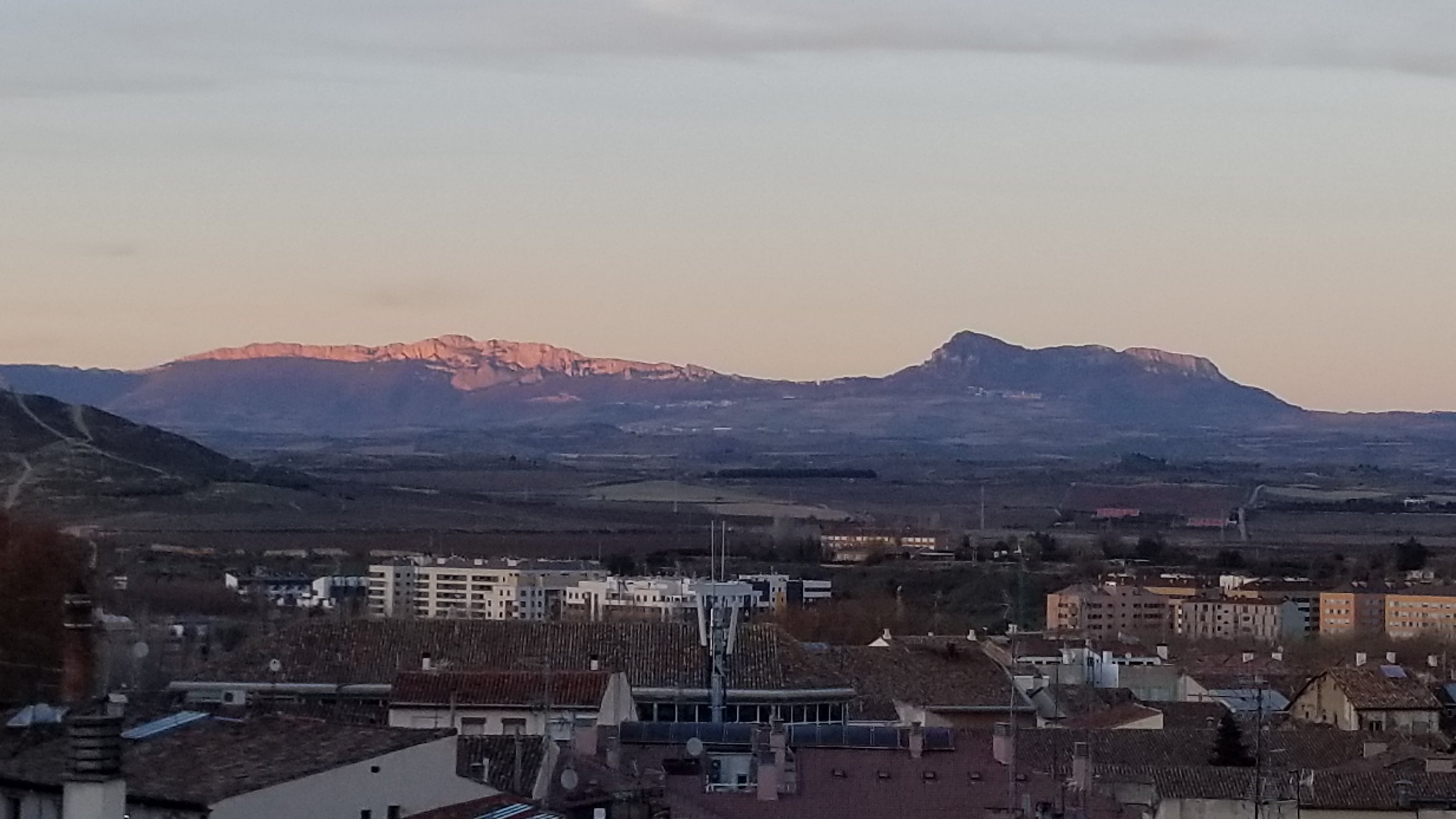
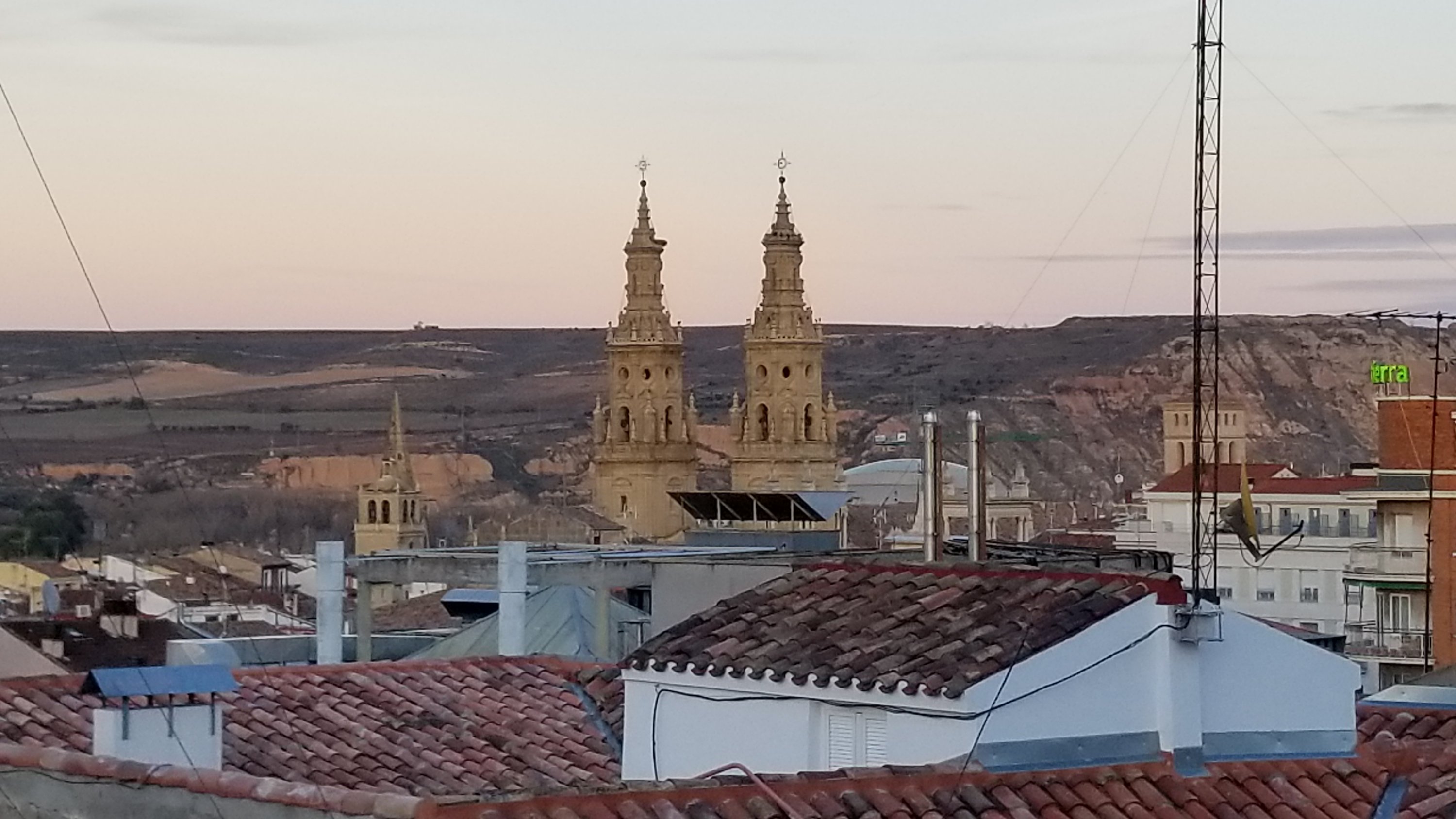
We made our way to a nice little Tapas place in a region of town called Calle del Laurel. This area was PACKED! Yes, I kept a hand on my wallet the entire time.
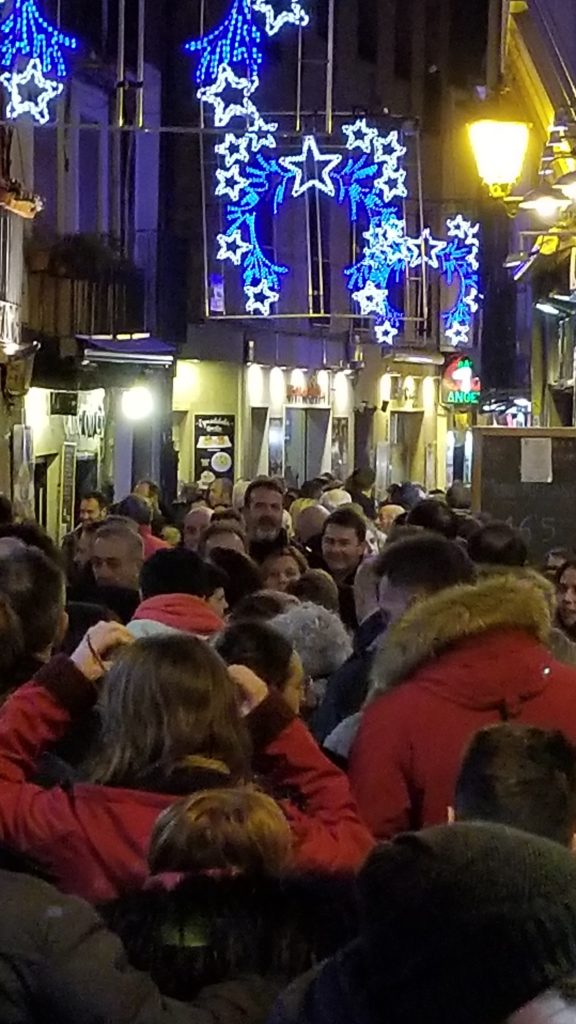
If you see this wine in a wine store…buy it! Wow! I think the bottle was 9 euros. Highway robbery I tell you!
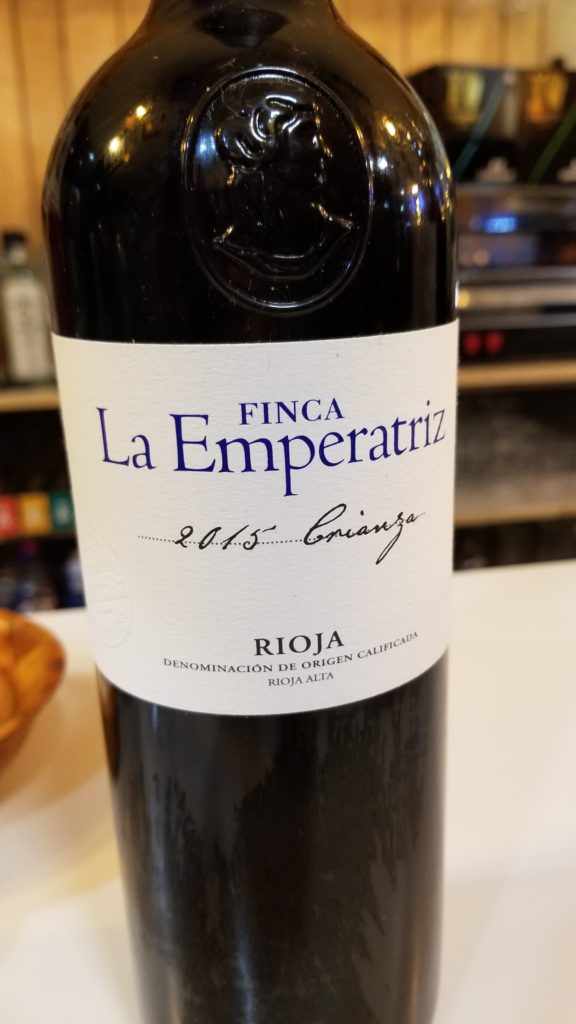
The next morning we drove to Haro (pronounced arrow), where there are several of the most famous (and oldest) wineries in Rioja. First stop was Bodegas Muga. I’m not a train guy, but with that sort of cargo I can become one! We found out later during a tour of a different winery that the train station was right in the middle of all of these wineries, which is why they all ended up being tucked so close to each other. Three of the most famous wineries in Rioja are within 100 yards of each other. We tried 5 wines here and they were all pretty good, with the best being their Reserva Seleccion Especial. Bodegas Muga dates from 1932. so it’s been around awhile.
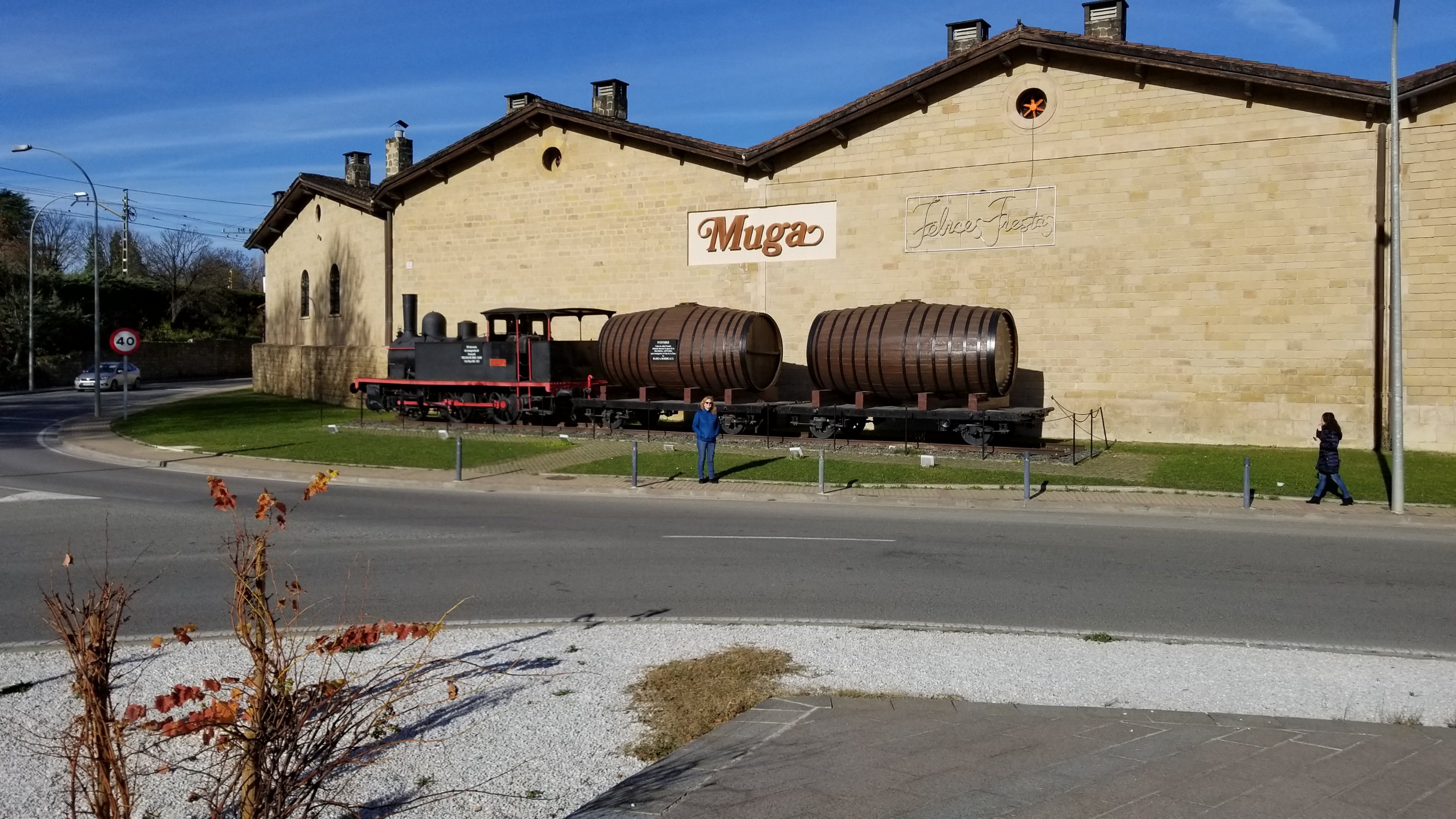
The next winery was Bodegas Roda, where we didn’t do a tasting but a shared glass of wine. Really quite good, but the tasting might have been influenced by the view and the ambiance of the cellars.
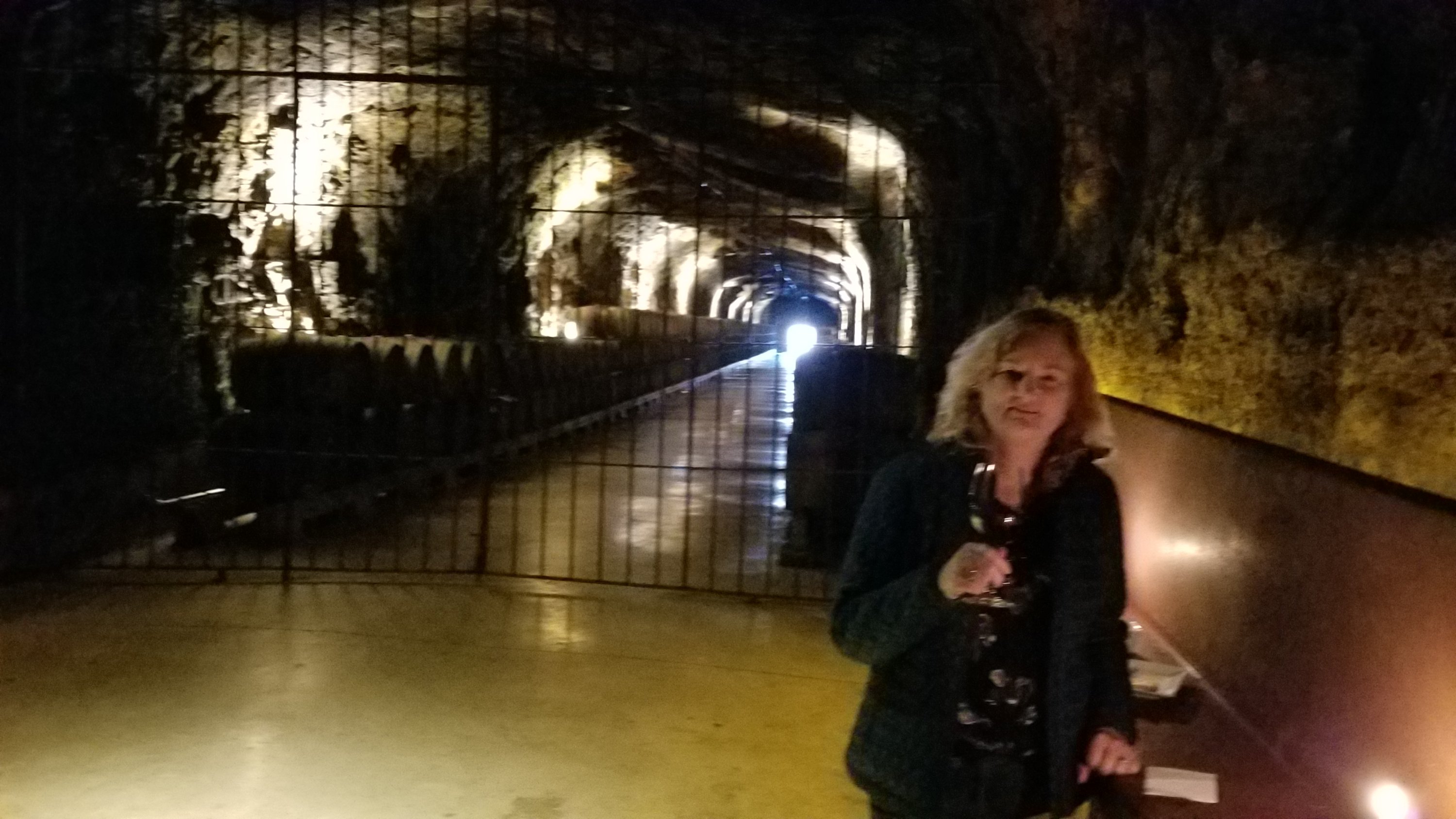
Then we were off to our 1230 appointment with Lopez de Heredia, one of the oldest wineries in Spain. The below tasting bar was built for the 125th anniversary of the winery for the Food and Drink Fair in Barcelona. They have now built a structure around it for their tasting room.
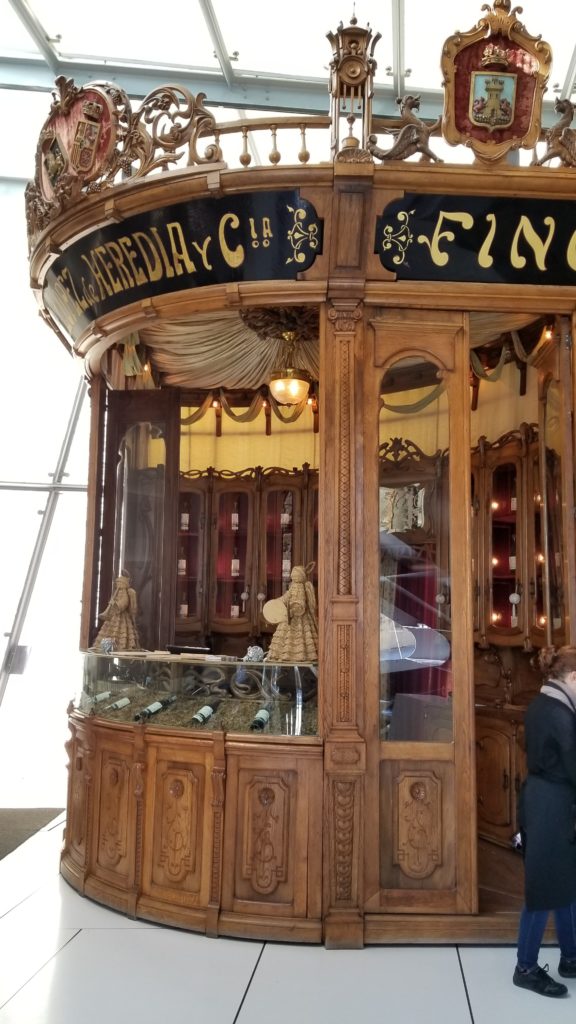
The idea for a winery started in the mid 19th century when French “negociants” (winemakers who don’t own their own vineyards) visited the Rioja region to find quality grapes since phylloxera had decimated the vineyards in France. Don Rafael López de Heredia saw the potential market based on the French need, and started the winery in 1877. After our tour, I can say they haven’t changed much since 1877.
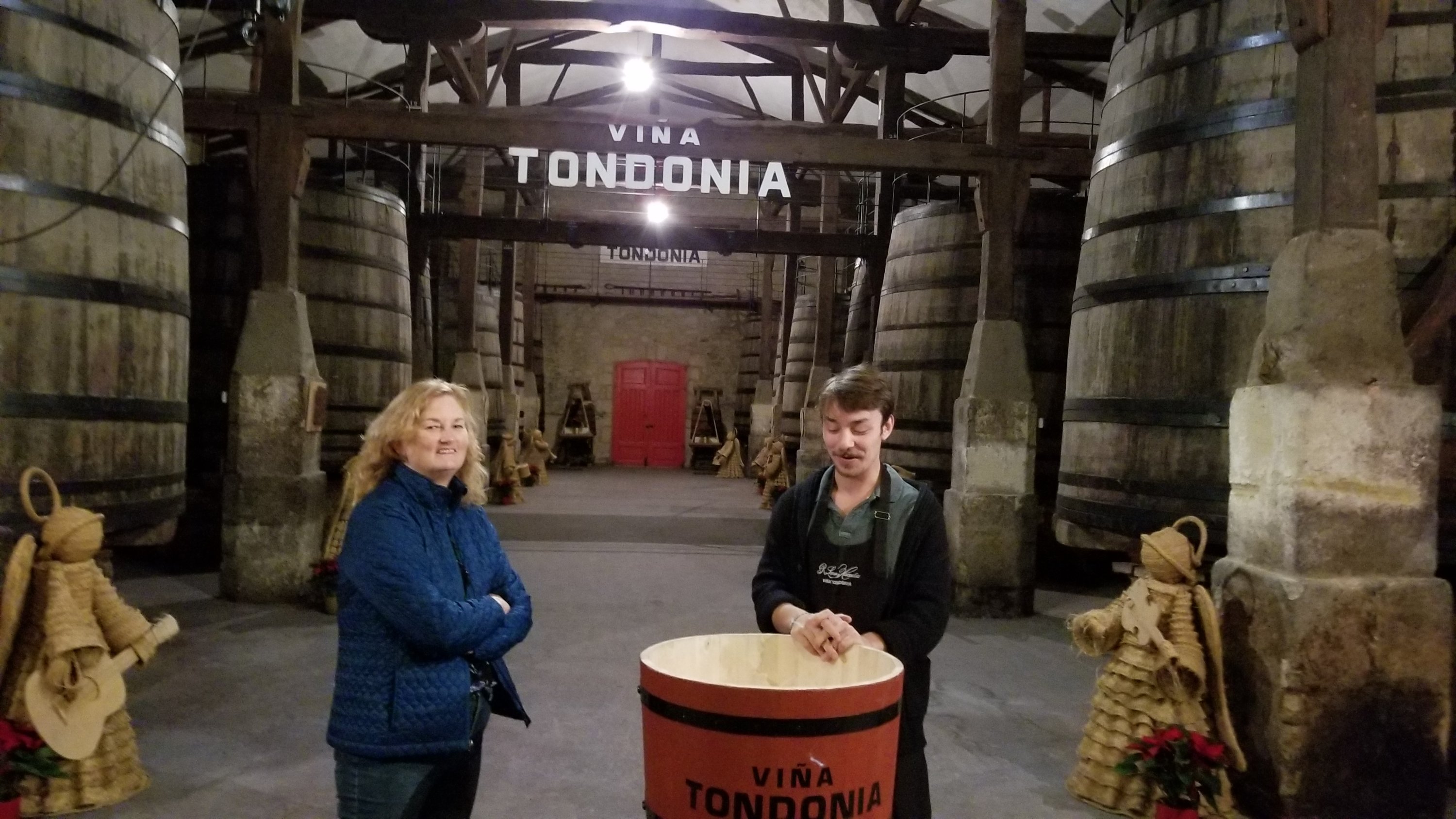
Our tour guide, Augustino (I think I remembered it correctly), shows us the fermentation vat room. Some of these vats are over 100 years old. The insides of the vats have a lining from years of use that looks a bit like concrete (and feels like it too) that they leave in place to help with flavors and fermentation (the layers apparently have some yeast in them, but that didn’t make sense to me…I figured all yeast was exhausted during each fermentation). This photo is a piece of the vat lining that had fallen off.
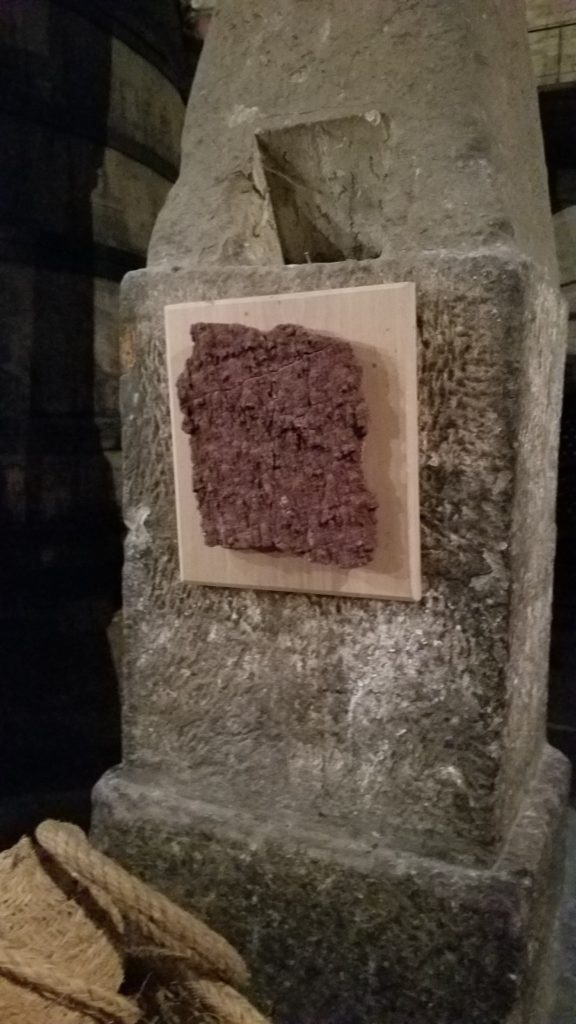
When they move the wine from the fermentation vats, they filter it with a band of grape canes to remove any seeds or other objects. These bundles of canes are inserted into the vats lengthwise right at the vat outlet before the grapes are put in.
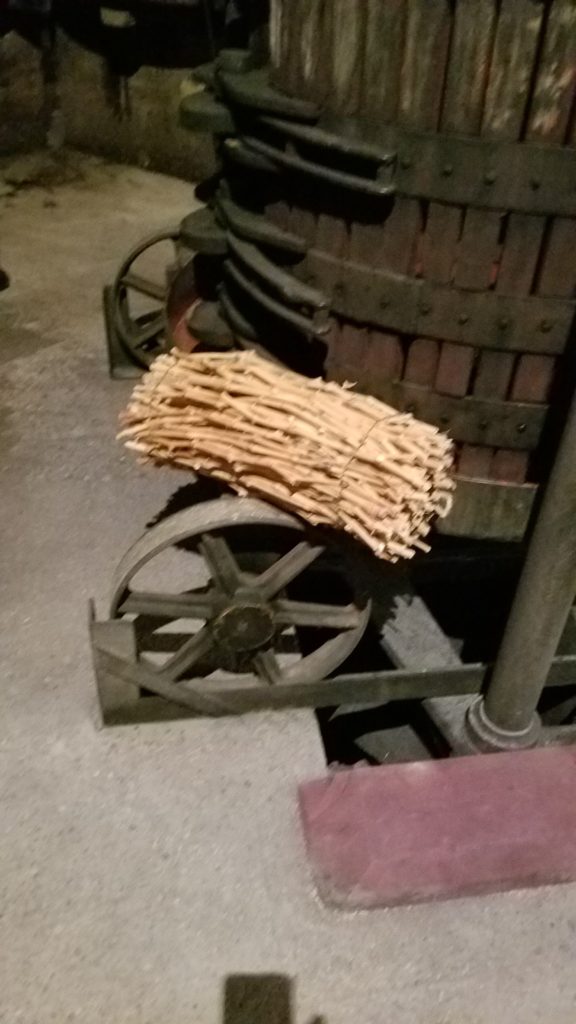
This place has their own cooper. Let me state that again for emphasis. They have their own COOPER! They make all of their barrels in house, as well as all barrel repairs. One guy makes about a barrel per day. This is for a place that uses maybe 0.5% new oak…..nearly all of their aging barrels are decades old. The cooper is only replacing barrels that can no longer be used. The old barrels are burned to toast the new barrels….the circle of life! We were there on a Saturday so we couldn’t see him in action. Something we have found quite the norm here in Spain….they use American oak, from Mississippi and Ohio mostly, as they like the influence on the wine versus French oak. Of course, when you are using decades old barrels, there is no influence, but I digress.
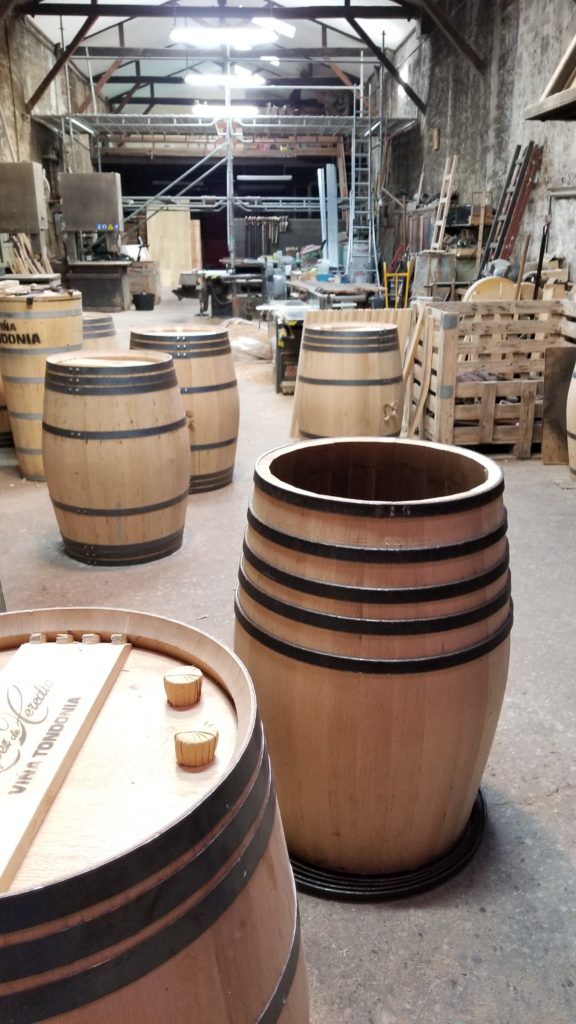
Here is a shot of all of these old barrels, all of them filled with wine. They each have two holes with bung plugs in the side so they can transfer wine from barrel to barrel every year. They have two holes so that when they start getting sediment from the first hole they drain the rest of the barrel from the second hole (he said they use it for fertilizer). I’ve never seen this anywhere else.
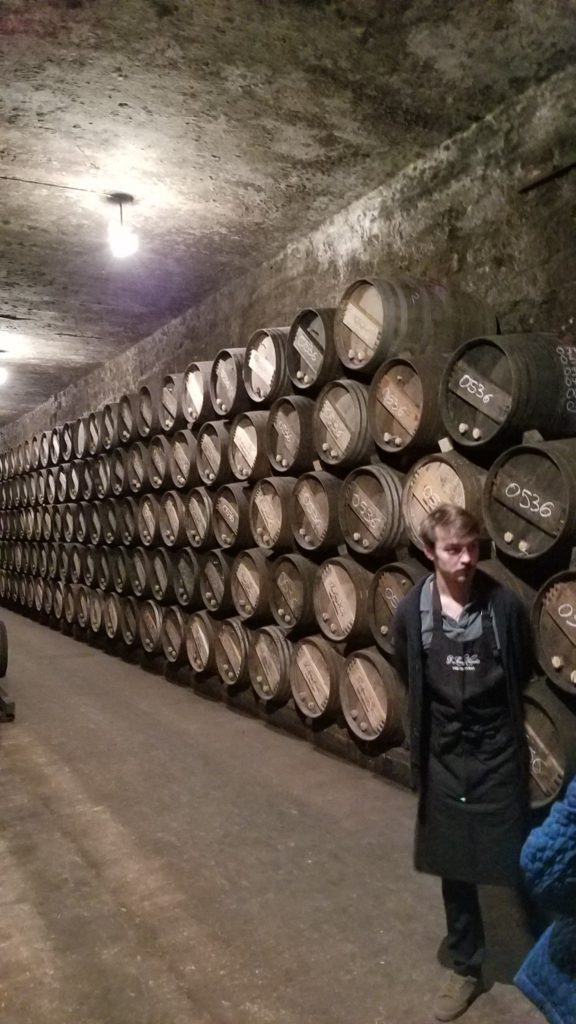
These ramps are used to move barrels from one level to another. I can just imagine a few barrels got away from the handlers over the years!
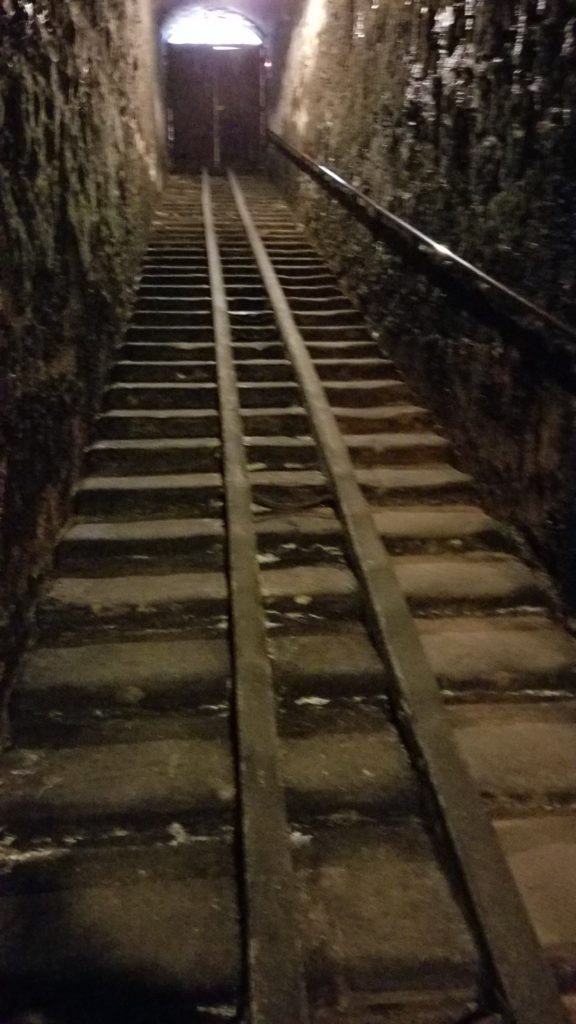
A door is dated 1892 in the cellar.
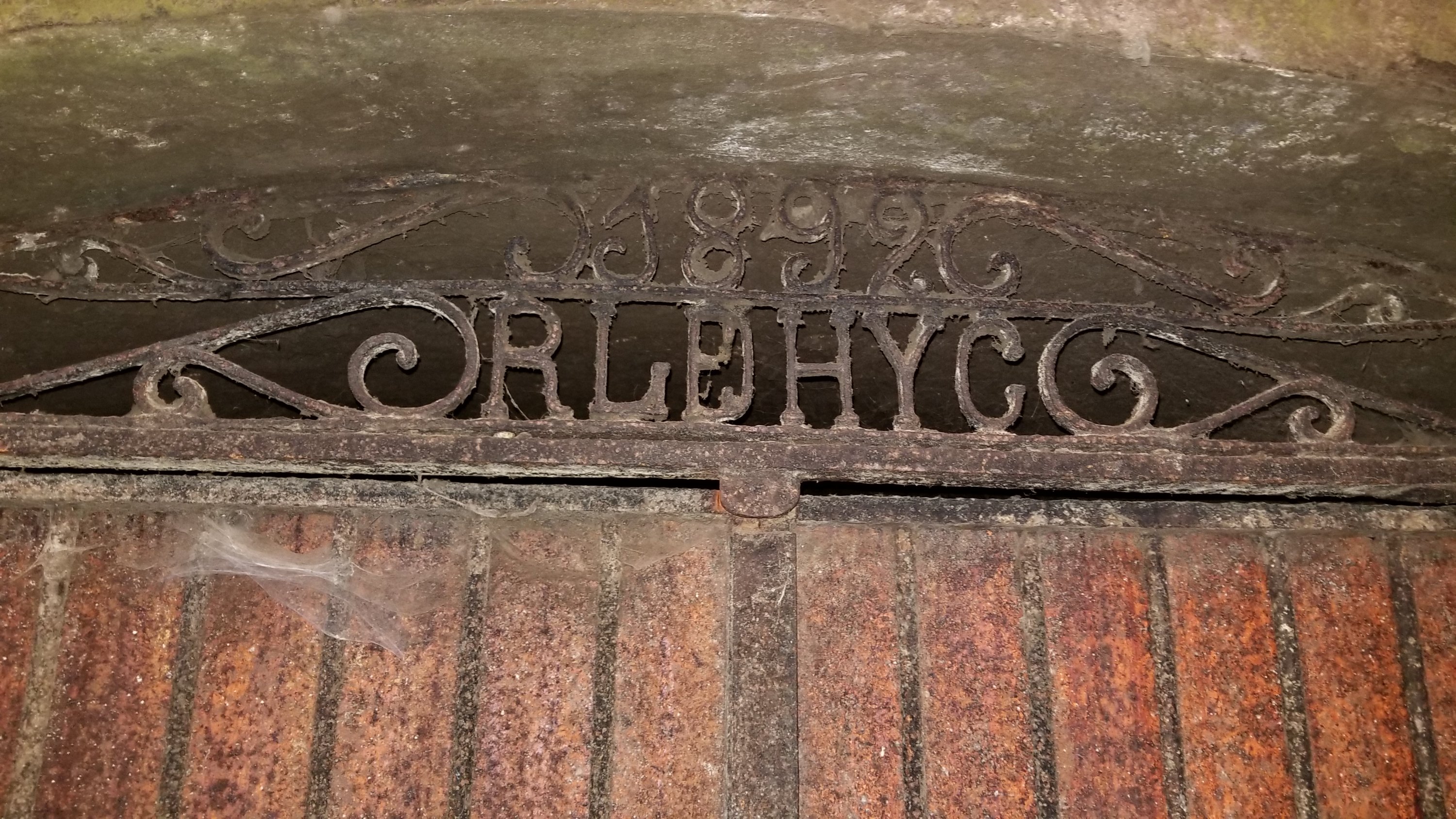
This is just part of the family stash….there must have been 10,000 bottles in their private cellar. The original owner had 15 kids, so they have a huge (and apparently very thirsty) family.
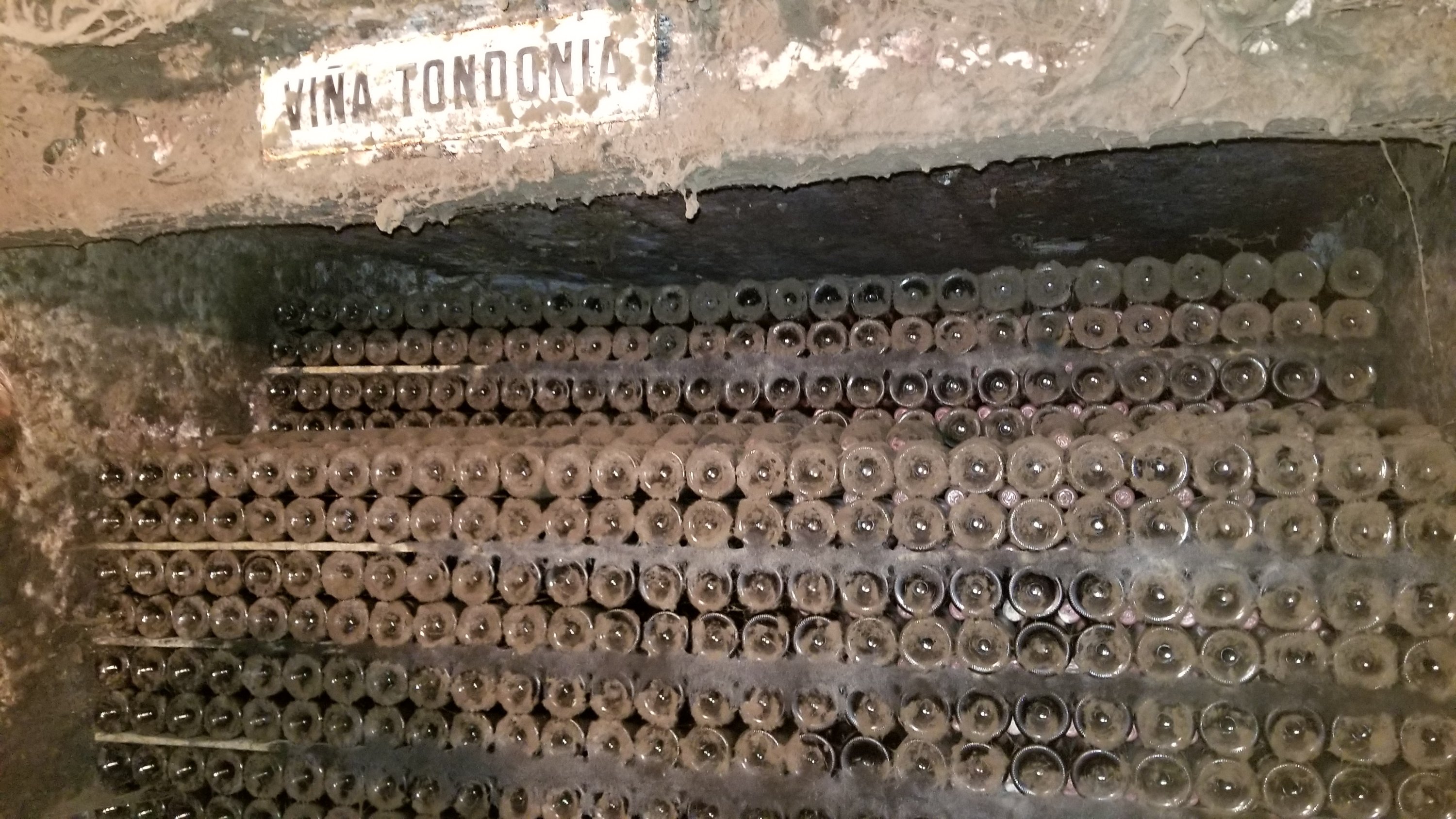
They like their spiders in this place!
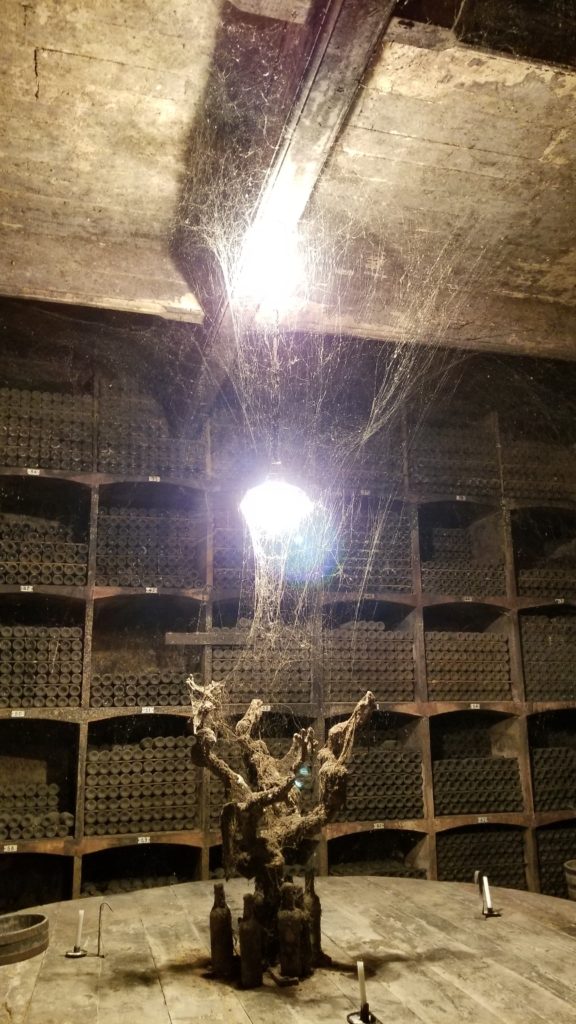
Our private tasting area after the tour. The Vina Tondonia Reserve was definitely the best wine of the bunch. All of their wines are aged for 4 years in barrel, then 4 years in bottle before release. The 2009 is their latest release, but they were pouring the 2006. As part of the tour, each person was given a bottle of the 2006 to take home. The tour was 30 euros, and the wine sells for 25 euros. Not a bad deal!
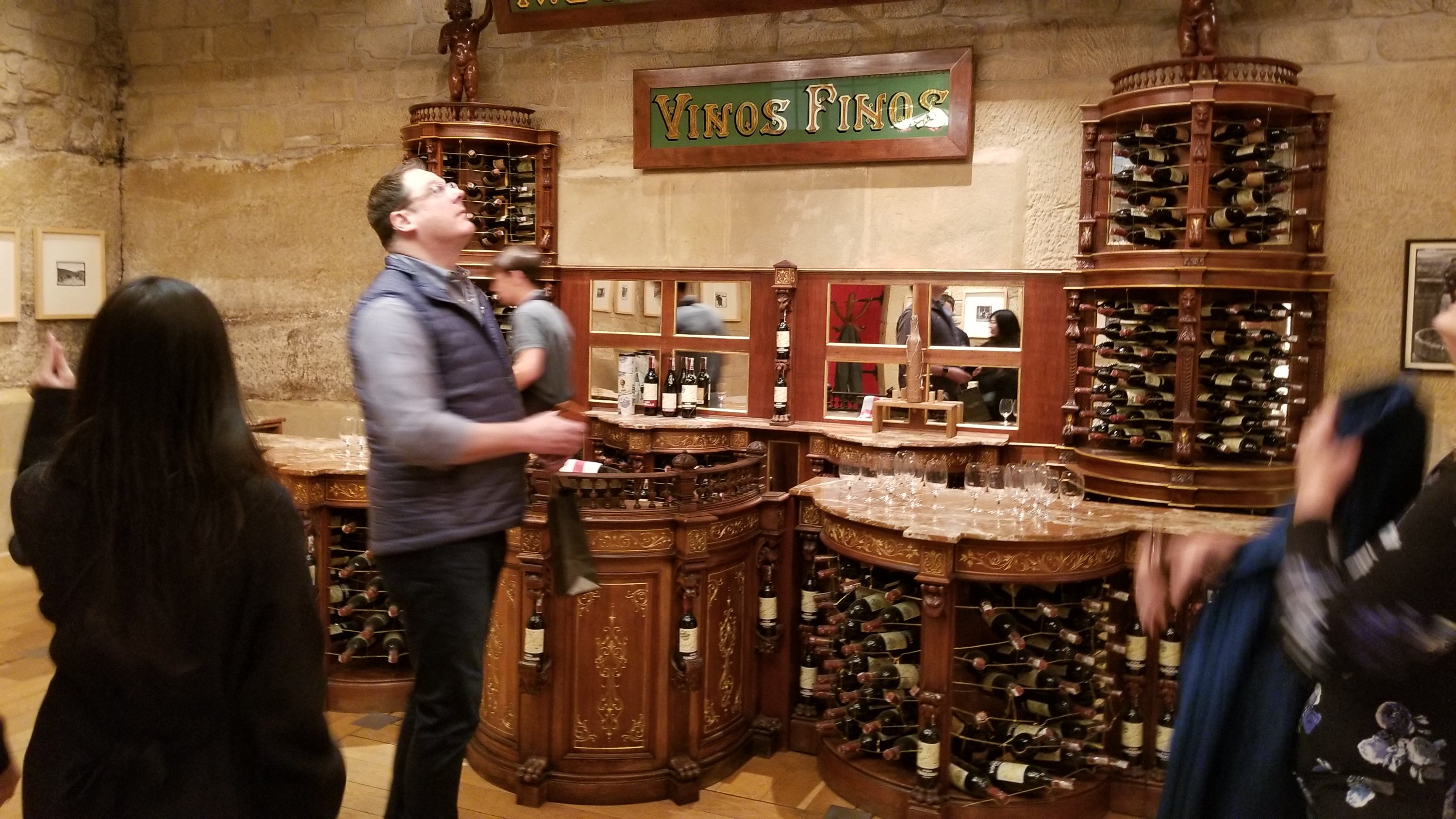
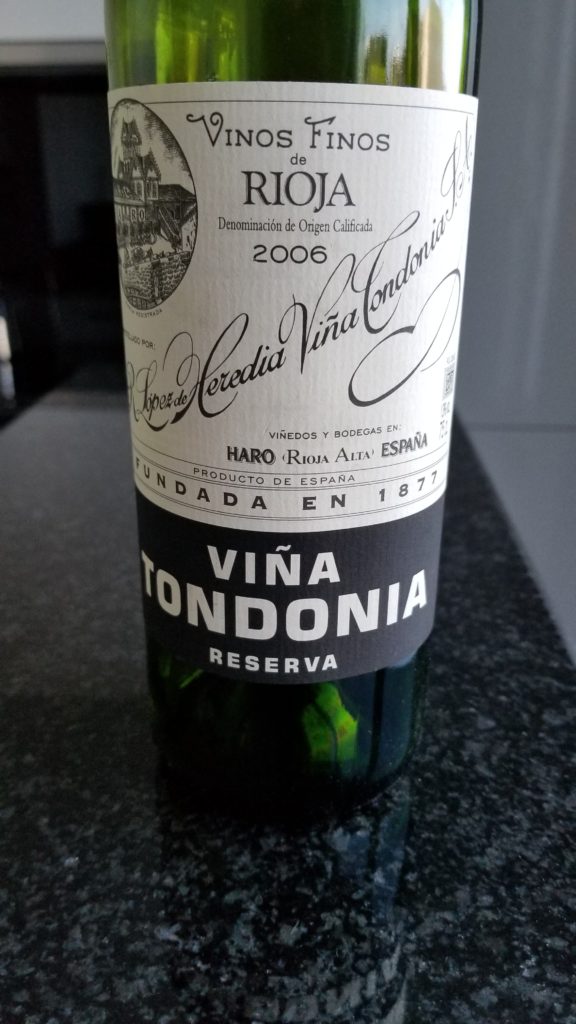
After much begging and pleading by our tour mate Tommy from Texas, Augustino opened a 1969 white wine. I’ll say it was “interesting”. Old whites don’t generally get my stamp of approval.
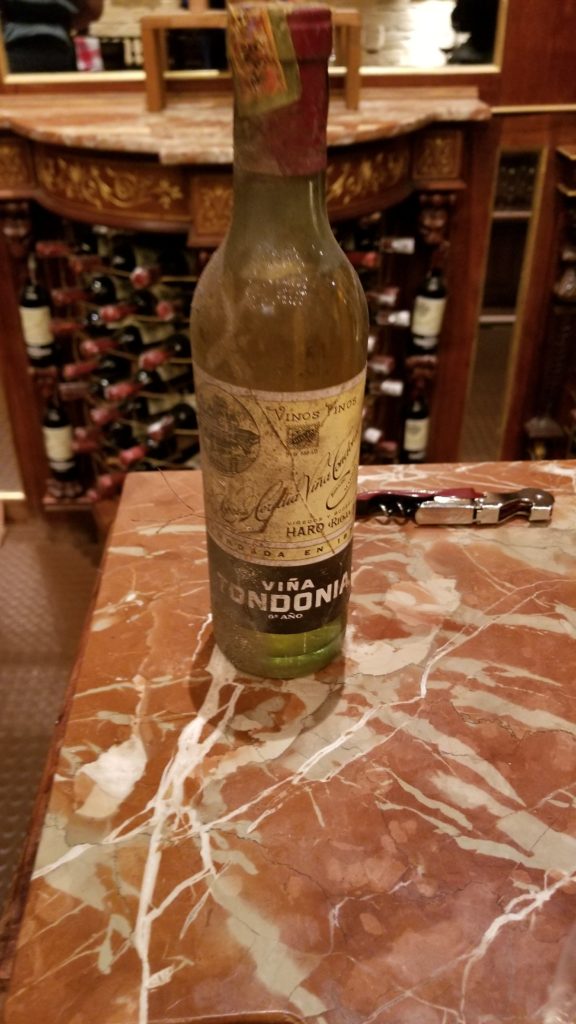
We then drove to Marques de Riscal, where we were supposed to have a tour, but decided against it when we saw the size of the tour crowd. A lot of these tours get pretty redundant. We did go out of our way to find a spot to take a photo of the winery/hotel/restaurant as it was designed by the world famous Frank Gehry. The first photo is a stock photo from the hotel. If you aren’t staying here (for $400+ a night) or eating at their overpriced restaurant, you aren’t welcome. The lower photo is one I managed to take after nearly killing myself trying to find a good vantage point in the adjacent vineyard site.
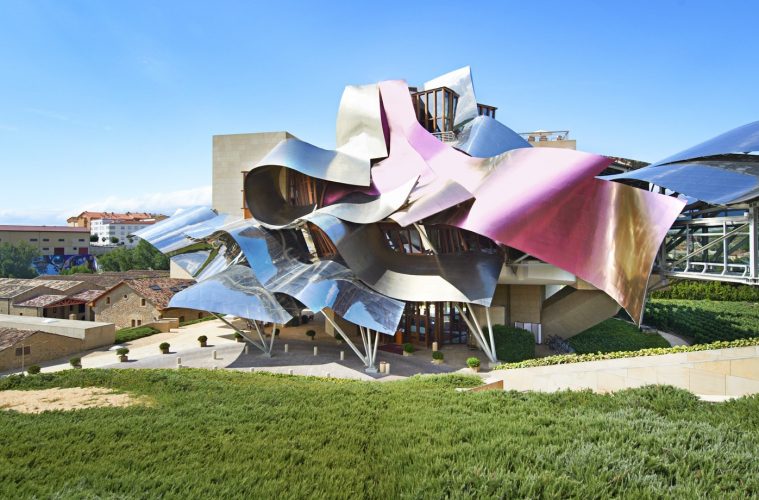
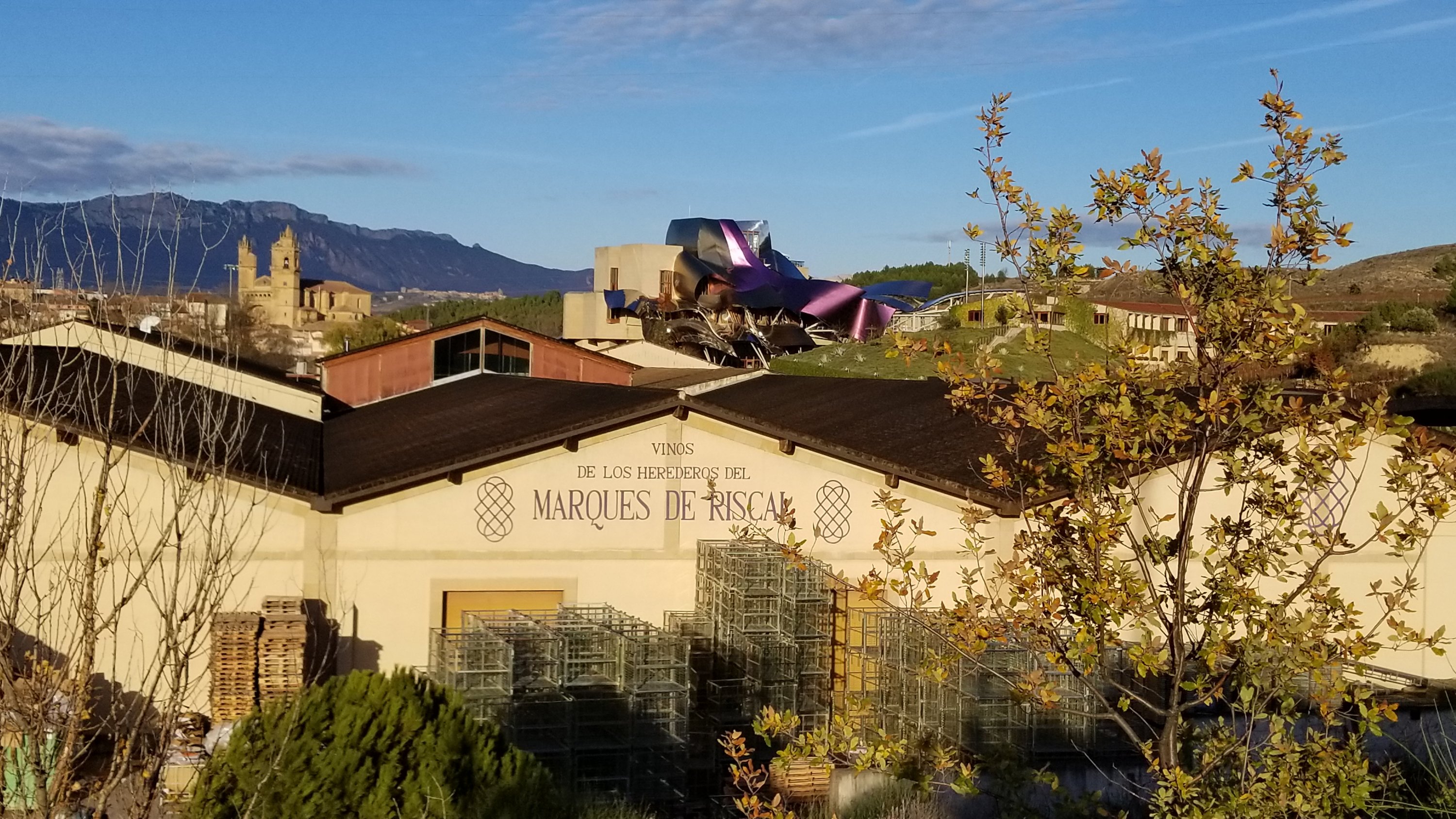
We happened to be driving nearby another winery on our way out of town (Bodegas Ysios), and even though they were closed, the place is truly gorgeous. The roofline was designed to mimic the mountain backdrop.
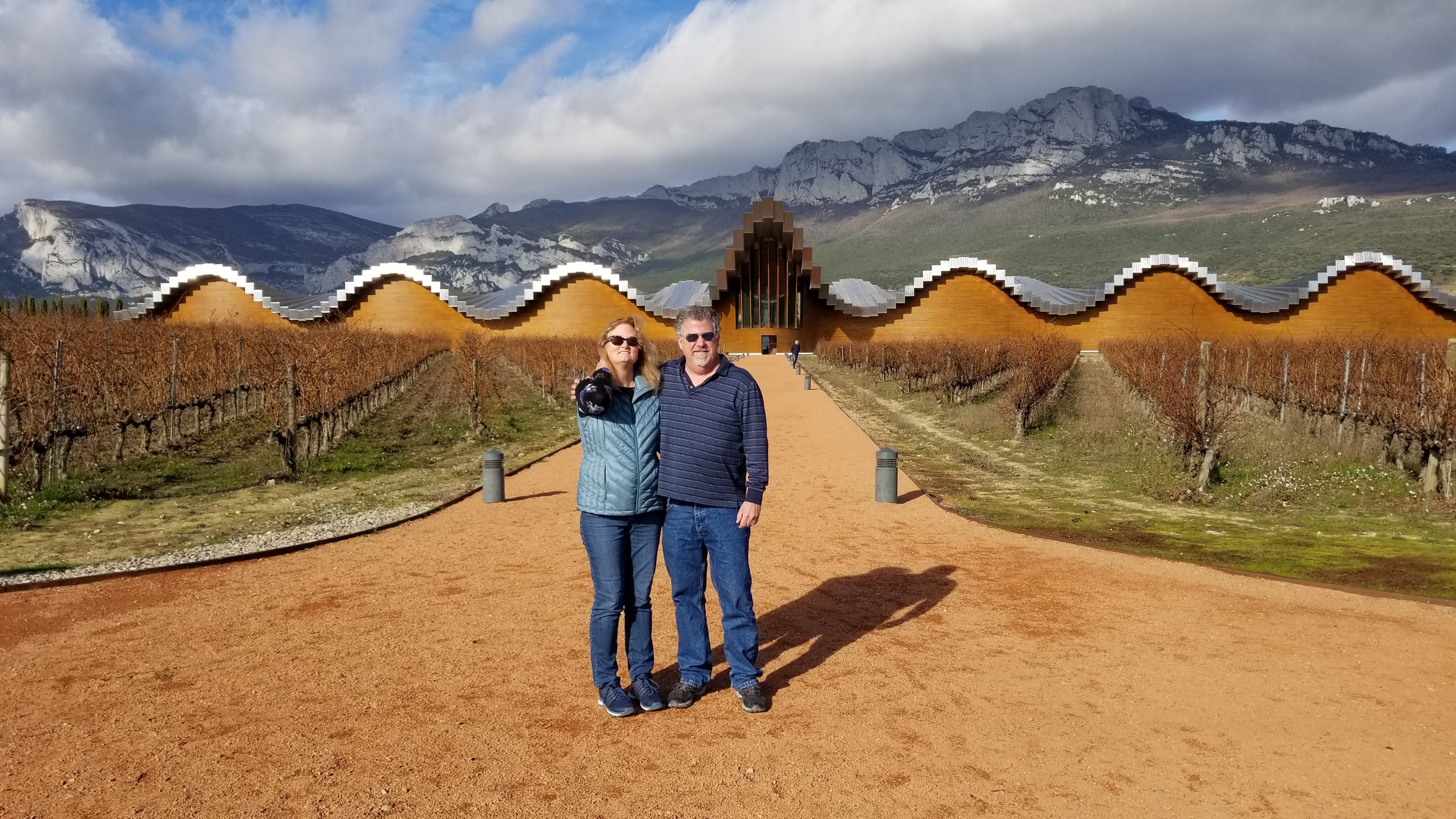
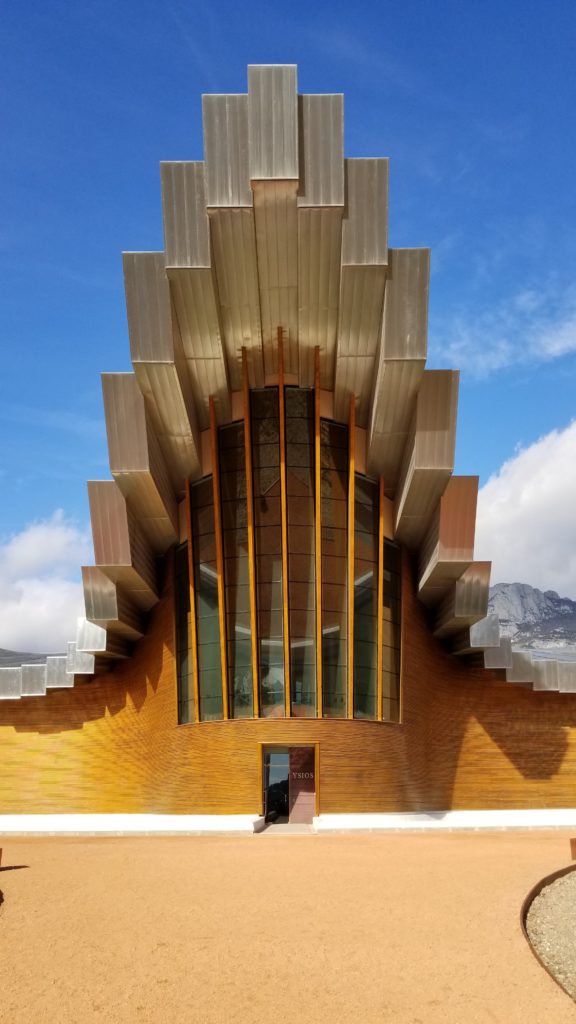
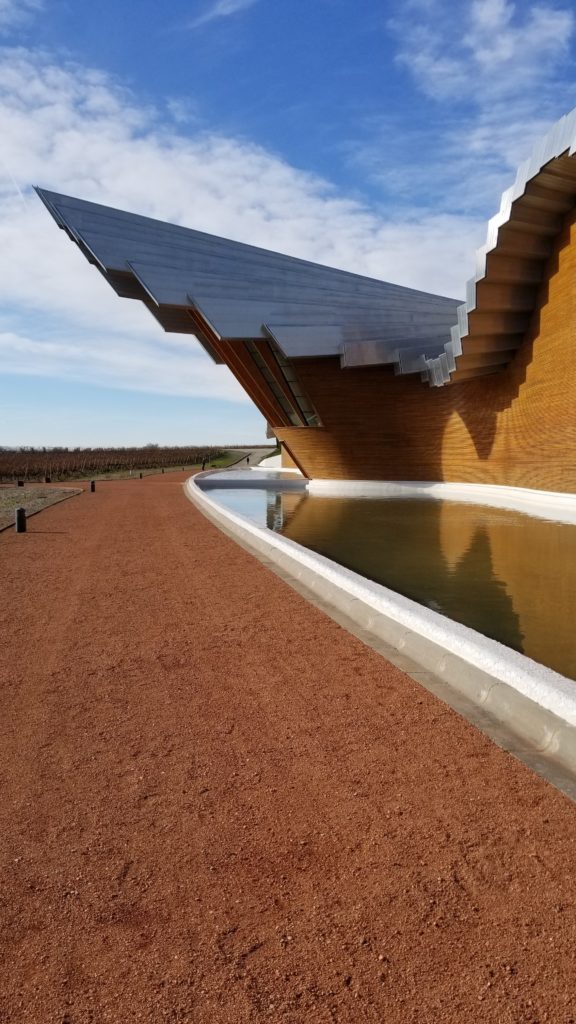
Off to San Sebastian and Basque country!
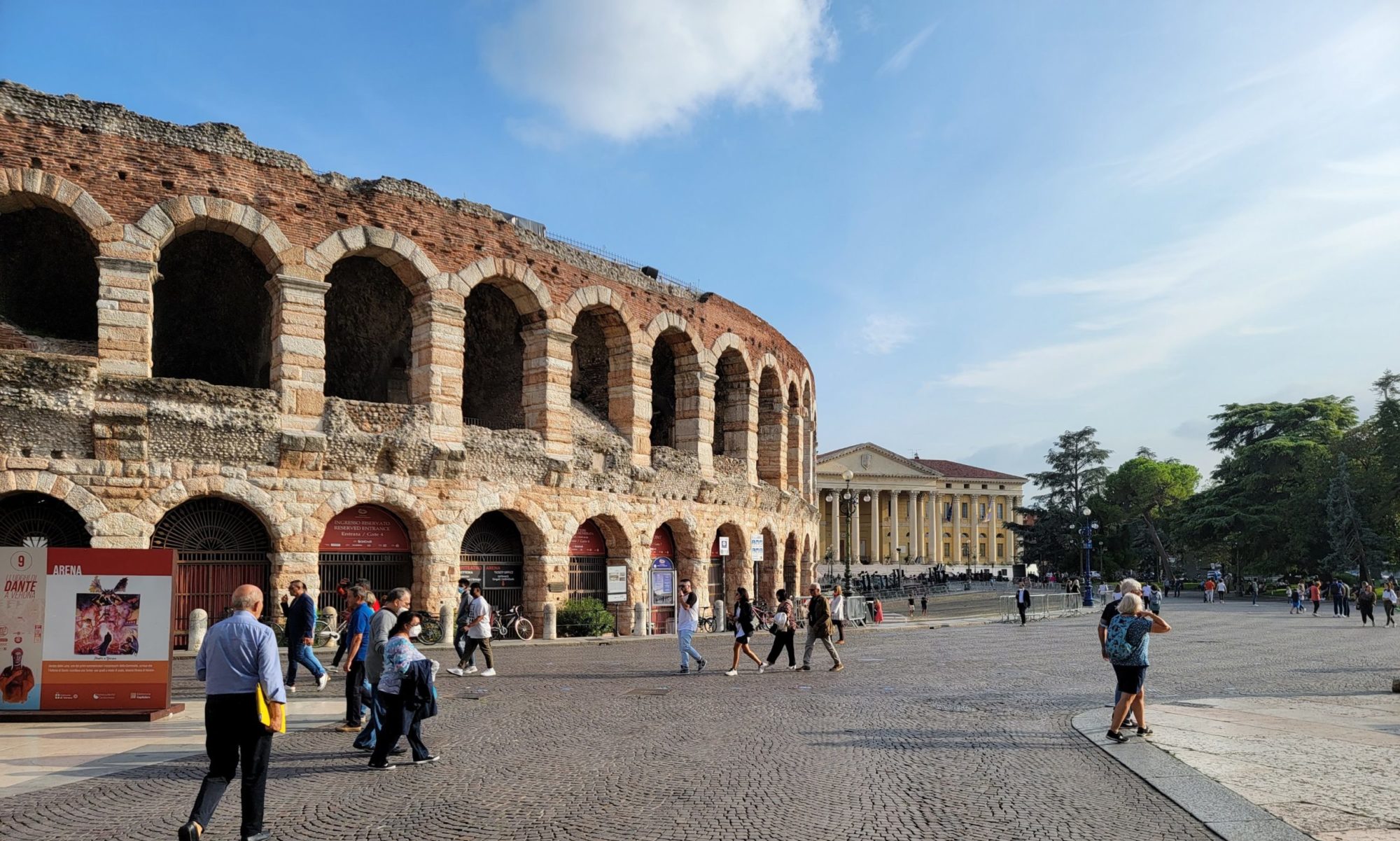
Are you shipping any wine home? We sometimes do, but a lot of the time we just find a distributor in CA and buy from them.
For those that export to the US we’ll be looking for them there. We did buy a few bottles to drink during our travels. No worries about not finding wine here!
Bodegas Ysios is gorgeous. The architect is Santiago Calatrava, a master of the lost art of arcs. His projects are beautiful, and unfortunately so ridiculously expensive to engineer (architects are notably stupid when it comes to structure) that they are in limited supply. This winery is amazing….and God knows it must have been ridiculously expensive to add all that non-essential fluff.
Great photos.